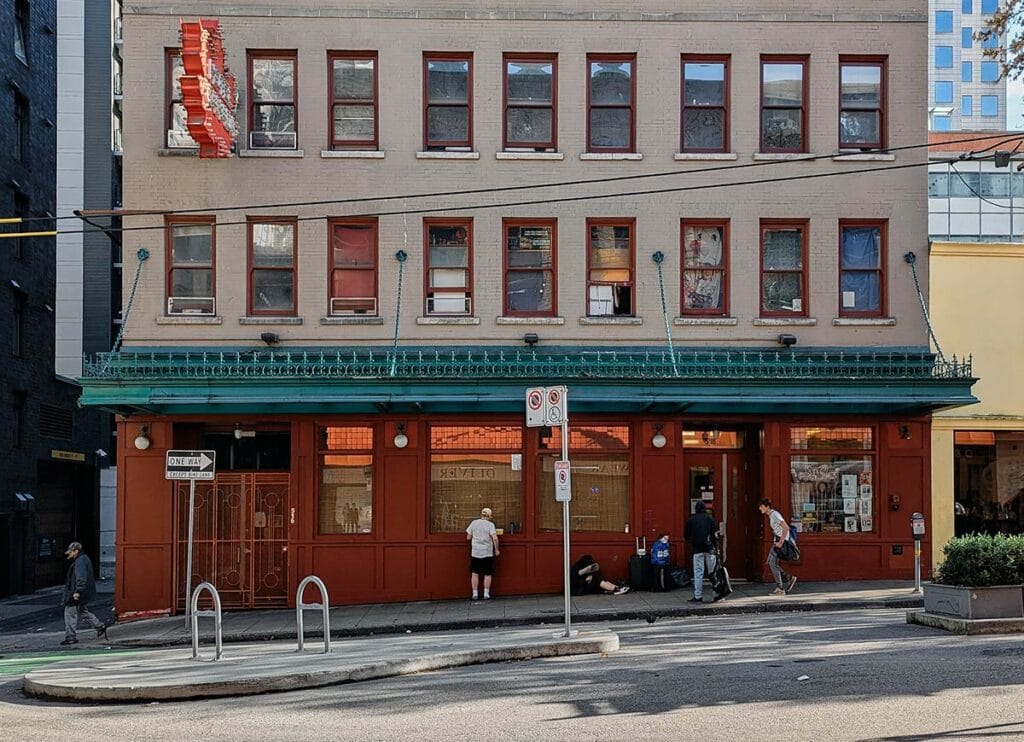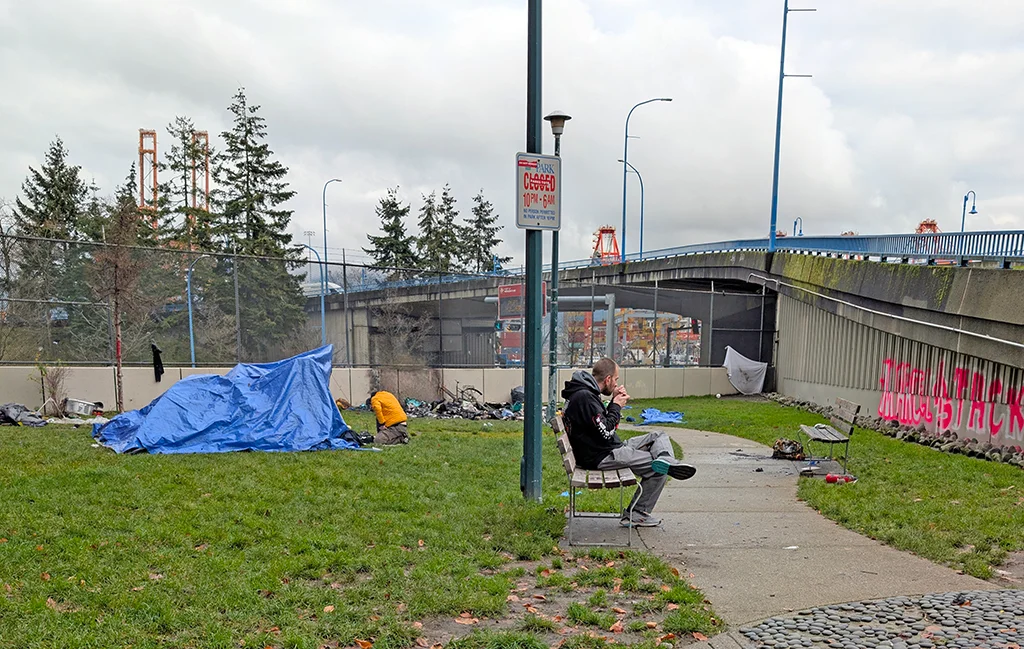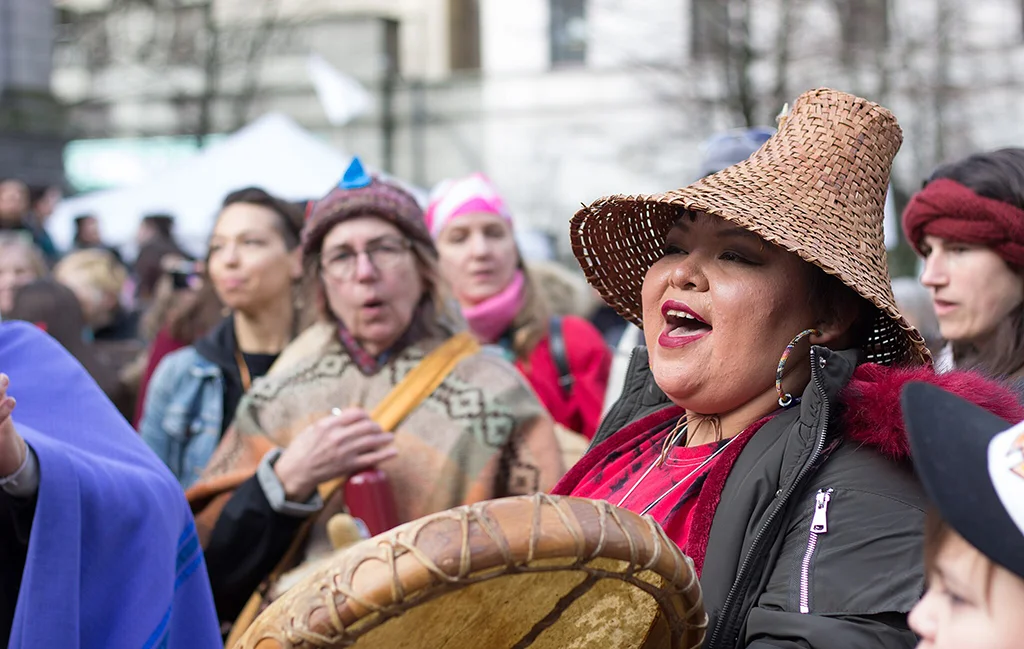Single Room Occupancies (SROs) have long served as the last stop before homelessness. However, the 2023 Low-Income Housing Survey highlights a sobering reality: SROs, once a vital safety net for low-income residents, are disappearing at an alarming rate. Rising rents, closures due to fires and neglect, and rapid gentrification are shrinking the city’s stock of affordable housing faster than it can be replaced.
The 2023 survey reveals that the number of SRO rooms in Vancouver’s Downtown Core has fallen by 23% over the past four years, dropping from 4,055 rooms in 2019 to just 3,305 rooms in 2023. This decline is due to a combination of factors, including building closures from fires, city orders related to unsafe conditions, and redevelopment projects that are converting these aging structures into more expensive market-rate housing. The loss of SROs is especially concerning as they have historically served as the last resort before homelessness for thousands of residents.
The survey paints an increasingly grim picture of affordability. In 2003, Vancouver had 1,700 privately owned SRO rooms renting at the shelter component of income assistance, then set at $375 per month. By 2023, that number has plummeted to just 52 rooms, reflecting a market that has left behind the most vulnerable tenants. The average rent for an SRO in Vancouver’s Downtown Core in 2023 stood at $681, up from $561 in 2019—a staggering 21% increase over just three years. For many low-income residents, this puts even the most basic housing out of reach.
A Lifeline in Jeopardy
Single Room Occupancies are small rooms—typically about 10 by 10 feet—with shared bathrooms and kitchens. Many of these buildings were built in the early 1900s, originally housing seasonal workers in Vancouver’s resource-driven economy, but over time, they became crucial low-cost housing options for the city’s poorest residents. In the Downtown Eastside, SROs are often the last available step before one ends homeless on the streets, offering a semblance of stability for those who have few, if any, housing alternatives.
Today, the situation for tenants in SROs is precarious. The survey found that 60% of residents in privately owned SROs are spending more than half of their income on rent, a figure that underscores the growing unaffordability of these units. This is a critical threshold, as spending over 50% of income on housing is widely recognized as a significant risk factor for housing instability and eventual homelessness. With the provincial government’s planned increase to the shelter component of income assistance, the situation may improve slightly, but for most SRO tenants, the new shelter rate will still fall short of covering the rising costs of rent.
Private SROs have seen a steep decline in affordability over the years. According to the survey, average rents in the private SRO stock have jumped from $561 in 2019 to $681 in 2023, with some units renting for as much as $736. This is a far cry from the $375 per month that many tenants can afford on income assistance. Compounding the problem is the fact that rents are rising fastest in buildings that have changed ownership, as new investors perform minor renovations that allow them to charge significantly higher rents without triggering the city’s SRA by-law regulations.
SRA By-law Amendments and Investment Strategy
Vancouver has responded to the crisis by proposing amendments to its Single Room Accommodation (SRA) By-law, a set of regulations designed to protect the city’s diminishing stock of low-income housing. The by-law, first enacted in 2003, was intended to prevent the demolition or conversion of SROs into more profitable market-rate units. However, the new amendments aim to strengthen these protections and address some of the underlying causes of SRO loss.
One key amendment expands the definition of “demolition” to include owner neglect that renders a building uninhabitable. This is a critical change, as many privately owned SROs have been allowed to deteriorate to the point where they must be closed for safety reasons, effectively removing them from the housing stock without the need for a formal demolition permit. Under the proposed changes, landlords who fail to maintain their buildings would be held accountable, and their properties would still be subject to the by-law’s protections, ensuring that replacement housing is provided.
Another significant amendment involves increasing the SRA conversion fee from $230,000 to $300,000 per room. This fee is intended to reflect the rising costs of land and construction in Vancouver and would be used to fund the development of new social housing units. While this fee increase is a step in the right direction, it may not be enough to fully offset the loss of SROs, as the cost of building new, self-contained social housing units often exceeds $300,000 per unit.
In addition to these regulatory changes, Vancouver is working with the provincial and federal governments to develop an SRO Investment Strategy. With a budget of approximately $2 million, the strategy will take 18 months to develop and will focus on identifying the highest-priority SRO buildings for renewal or redevelopment. The city’s goal is to replace aging SRO stock with new, self-contained social housing units, but given the current pace of SRO closures, this strategy may not come fast enough to prevent further losses.
Government and Non-Profit Ownership of SROs
As private ownership of SROs becomes increasingly unfeasible without external subsidies, the government and non-profit organizations have stepped in to purchase and manage these buildings. Government and non-profit ownership of SROs has increased to nearly 50% of the total SRO stock, up from 48% in 2019. This shift is helping to stabilize rents and provide more secure housing for low-income residents, but it also highlights the extent to which the private market has failed to provide affordable housing.
The city has made notable progress by expropriating two of the DTES’s most infamous SROs: the Regent Hotel and the Balmoral Hotel. These buildings, which had become notorious for their poor living conditions and neglect, were expropriated in 2020 after years of legal battles. The Regent and Balmoral, both located on East Hastings Street, are now set to be redeveloped into social housing, with plans to create new self-contained units in partnership with BC Housing.
The demolition of the Balmoral was completed in the end of August 2024, and the site will be redeveloped into new social housing units, adding much-needed affordable housing to the DTES. The Regent, meanwhile, is undergoing renovations to convert its existing rooms into self-contained social housing units. These projects are significant victories for housing advocates, but they also underscore the need for more aggressive action to preserve and replace Vancouver’s shrinking SRO stock.
Government Hotel Acquisitions Amidst the Pandemic
During the COVID-19 pandemic, Vancouver and other levels of government pivoted to a new strategy: acquiring low-end hotel properties to rapidly provide housing for the homeless. This approach, intended to deliver quick solutions amid rising homelessness and encampments in the Downtown Eastside, has allowed the city to sidestep the lengthy timelines required for new permanent construction or even temporary modular housing. Several of these properties, including the 110-room Howard Johnson Hotel on Granville Street and the Ramada Vancouver Downtown hotel, were purchased by BC Housing as part of a broader effort to provide immediate shelter and plan for future affordable housing developments.
The Province, through BC Housing, has been particularly active in this area, acquiring not only the Howard Johnson and Ramada hotels but also other low-end properties, such as the Inn at 2075 Kingsway, a 1949-built motel with 66 rooms, and the Buchan Hotel on Haro Street, which was purchased for $19.4 million. These acquisitions, while providing temporary relief, are part of a longer-term strategy to convert these sites into purpose-built affordable housing. The American Hotel at 928 Main Street, along with an adjacent lot purchased for $17.9 million, is another example of how the government is working to preserve housing for low-income residents while planning for future developments.
However, these rapid acquisitions have not been without controversy. Recently, statistics revealed that five of Vancouver’s SROs, including the Ramada Inn, accounted for over 30,000 calls to police in just five years. This has raised significant concerns about the sustainability of housing solutions that fail to address underlying issues like crime, mental health, and addiction. From an economic, safety, and community standpoint, many argue that simply housing the homeless in these hotels without comprehensive support services is a band-aid solution. Without addressing these interconnected challenges, there are fears that the Downtown Eastside may no longer be seen as just a neighbourhood with its geographical boundaries, but as the epicentre of a growing social phenomenon with far-reaching implications for the entire city.
Rent Hikes and Tenant Displacement
For tenants in private SROs, rent hikes and displacement remain pressing issues. The survey found that SRO buildings that have changed ownership in recent years have seen average rent increases of 10% per year, compared to a 4% annual increase in buildings that have remained under the same ownership. This pattern is particularly pronounced in the DTES, where investors have increasingly targeted SROs for speculative investment, driving up rents and displacing long-term tenants.
In 2023, 23 SRO buildings in the Downtown Core had average rents of $700 or more, up from 769 rooms in 2019. This trend reflects the growing pressure on the SRO market as developers and investors seek to capitalize on Vancouver’s red-hot real estate market. Many of these buildings have undergone only minor renovations, allowing landlords to increase rents without triggering the city’s SRA by-law, which regulates conversions and demolitions.
As rents continue to rise, more and more SRO tenants are being displaced. As at least 60% of tenants in privately owned SROs are paying more than half of their income on rent, little room is left for other necessities like food, transportation, and healthcare. This level of rent burden is unsustainable and is a major contributor to the city’s growing homelessness crisis.
Can Vancouver Turn the Tide?
The future of Vancouver’s SROs is uncertain. While the city’s proposed SRA by-law amendments and investment strategy offer hope, they may not be enough to prevent the further loss of affordable housing in Vancouver. The $50,000 fire safety grant, recently approved by the city, will help expand the Downtown Eastside SRO Collaborative Society’s tenant-led fire safety program to 18 additional buildings, potentially benefiting over 500 residents. This program, which trains tenants in fire prevention and response, is a vital step toward addressing one of the most common causes of SRO closures—fires.
However, with more than 1,200 SRO rooms currently closed due to fires or unsafe conditions, the need for immediate action is clear. The city’s longer-term goal of replacing SROs with self-contained social housing units is laudable, but the reality is that new housing developments take time, and the demand for affordable housing continues to grow. In the interim, more SROs could be lost, further aggravating the homelessness crisis.
To truly make an impact, Vancouver will need to accelerate the pace of its housing developments while ensuring that existing SROs are maintained and upgraded where possible. Without a more comprehensive and immediate response, the fight to preserve affordable housing in Vancouver may ultimately fall short. The question remains: can Vancouver act fast enough to save the SROs before they disappear entirely?
DOWNTOWNEASTSIDE.ORG is a collective author account used by several DTES contributors to discuss key issues and events in the neighbourhood. Articles under this authorship reflect diverse perspectives from those directly connected to the community. If you’d like to reach a specific contributor, please contact us via email.







Leave a Comment